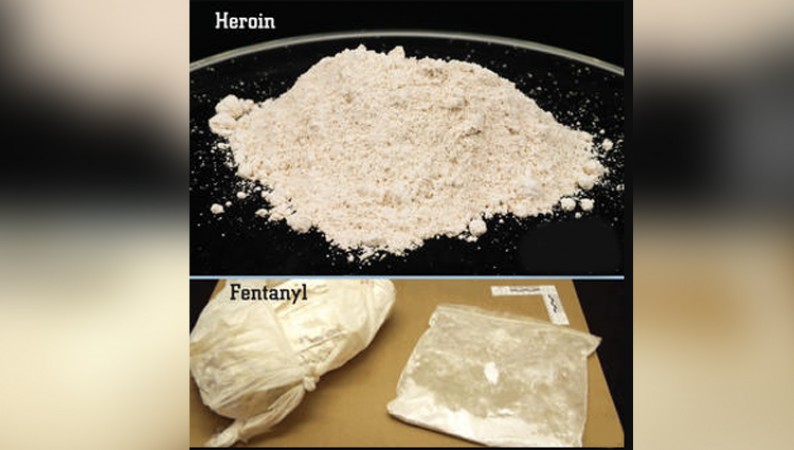
BEIJING: Although it is anticipated that China's decision to end cooperation with the US in the fight against drugs will have little effect on fentanyl smuggling, drug policy experts are skeptical about the prospect of continued cooperation between the two countries.
In retaliation for House Speaker Nancy Pelosi's visit to Taiwan, which Beijing saw as a serious violation of its sovereignty, it halted cooperation with Washington earlier this month.
As Spencer Lee, professor at the University of Macau and president of the Asian Association of Substance Abuse Research, noted, "The number of fentanyl trafficking cases that Beijing has failed, which was initially small, may not have affected significantly New tensions between the two countries.
Instead, it could prepare Beijing to curtail its efforts to stop the smuggling of fentanyl and precursor chemicals into the US and surrounding regions.
As a common street drug, fentanyl was first created as a pain reliever, but it has the potential to be 50 times more potent than heroin.
According to the US Centers for Disease Control and Prevention, about two-thirds of the nearly 108,000 drug overdose deaths in the US in 2021 involved fentanyl or other synthetic opioids.
Even though Beijing had previously claimed that only a small portion of the substances seized in the US were of Chinese origin, the US eventually persuaded Beijing to crack down on shipments of chemicals that were used to make fentanyl in 2019. can be done for. It was completed after years. To plead on behalf of China.
According to Dr. Bryce Pardo, associate director of the Rand Drug Policy Research Center, Beijing was never overly enthusiastic about the US State Department's request to strengthen industry regulations and oversight.
The most recent break in communications won't have much effect on big-ticket items—which were already largely frozen—but it is likely to interfere with any ongoing or upcoming joint investigations, liaison meetings, and work groups. Is.
According to Mo Guanao, a law professor at Yunnan Normal University and a member of the National Drug Control Office's expert committee, ending the partnership "will have some degree of impact on anti-fentanyl efforts in the US", but the US government should watch out for the crisis. incoming to deal with.
One of the few areas the US and China continued to work together, even as their relationship soured, was drug control.
Officials from the two countries exchanged information in several working groups, including the China-US Bilateral Drug Intelligence Working Group and the Counter Narcotics Working Group.
Although I hope that the break is only temporary and cooperation will resume soon, I do not see any reason for optimism. According to Li from the University of Macau, it may take some time before they decide to work together again in this area, given the growing tensions between the two countries.
While it is unlikely that cooperation will return rapidly, Roderick Broadhurst, professor of criminology at the Australian National University, stressed that it would be in everyone's best interest to resume effective mutual legal aid.
Joint cross-border law enforcement operations are the only effective way to stop this deadly trade, according to Broadhurst, who said China also faces a serious and growing problem with the use of illicit drugs by its young population.
In contrast, Broadhurst said, the two nations may inadvertently increase the level of cooperation through multilateral, regional and UN initiatives.
Analysts do not anticipate that if cooperation resumes after improving diplomatic relations, it will affect the flow of drugs to the US.
According to Leo Beletsky, professor of law and health sciences at Northeastern University, the problem with fentanyl is primarily demand rather than supply. Even if the Chinese government somehow magically shuts down the production and transportation of these chemicals in a matter of months or weeks, production will resume elsewhere in the world.
"US opioid demand is not being adequately addressed. To achieve this, the structural causes of substance abuse and addiction will need to be addressed, according to Beletsky.
More than 100 officials in Tibet are punished for failing the zero-Covid test
Hong Kong lawmakers give bonuses to staff after the Legco term began